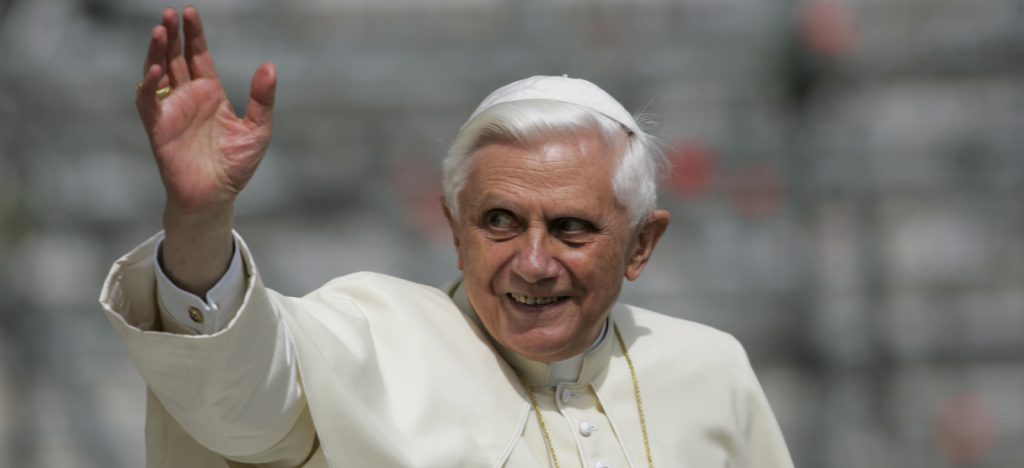
Published September 22, 2014
Tempi
The Italian news-and-commentary Web site Tempi published the following interview with EPPC Distinguished Senior Fellow George Weigel, built around issues raised in Weigel’s recent column, “Regensburg Vindicated.” This interview has been translated from Italian.
“Today one can say, without fear of contradiction, that the Regensburg Lecture of Benedict XVI has been vindicated.” After having written this in an article in First Things, George Weigel deepened the conversation in an interview with Tempi. The Catholic intellectual, celebrated around the world for a monumental biography of John Paul II, believes that the repeated atrocities committed against Christians by the Islamic State have clarified matters in an important way: “This violence brings to light the nature of jihadist Islam in an unequivocal way, and in consequence of that, it should be possible to reconsider the analysis of Islam’s challenges that Benedict XVI laid out in the Regensburg Lecture, and do so without the blinders of political correctness.”
Tempi: Professor, you write that there is “a civil war raging within Islam.” To what do you refer?
GW: There is a battle within both Sunni and Shia Islam for the future of that religion. On the one hand there are those who want to see Islam develop in such a way that it can co-exist with other faiths in a modern state; on the other hand, there are those who insist on an Islamist or jihadist version of Islam.
Tempi: And what does this war have to do with the Regensburg Lecture?
GW: Pope Benedict XVI clearly identified, in that lecture, the two problems that are at the bottom of the conflict within Islam, and between Islam and “the rest:” the problem of religious freedom and the problem of the relationship between religious and political authority in a just state.
Tempi: Why did the West not understand Benedict XVI in 2006, and why can’t it understand today?
GW: Unfortunately, because to criticize Islam, then or now, is a violation of political correctness.
Tempi: What did Benedict XVI want to achieve when he called for a “dialogue with Islam”?
GW: He wanted to have a serious conversation about the two problems I mentioned above: religious freedom and the relationship between religious and political authority.
Tempi: And why has the West found it so difficult to follow this path?
GW: Because the public authorities can’t do it. But the Church ought to try.
Tempi: You use the conditional.
GW: Because the Church, too, has in large part forgotten the Regensburg Lecture.
Tempi: Why should the misunderstanding of the Regensburg Lecture and the atrocities of the Islamic State be linked?
GW: Because this violence has brought to light the nature of jihadist Islam in an unequivocal way; and in consequence of that, it should be possible to reconsider the analysis of Islam’s challenges that Benedict XVI laid out in the Regensburg Lecture, and do so without the blinders of political correctness.
Tempi: What is the first thing to be done, today, to help Islam and the Middle East find this path [that Benedict XVI laid out]?
GW: The first thing to do, without a doubt, is to stop the Islamic State.
George Weigel is Distinguished Senior Fellow of the Ethics and Public Policy Center.







